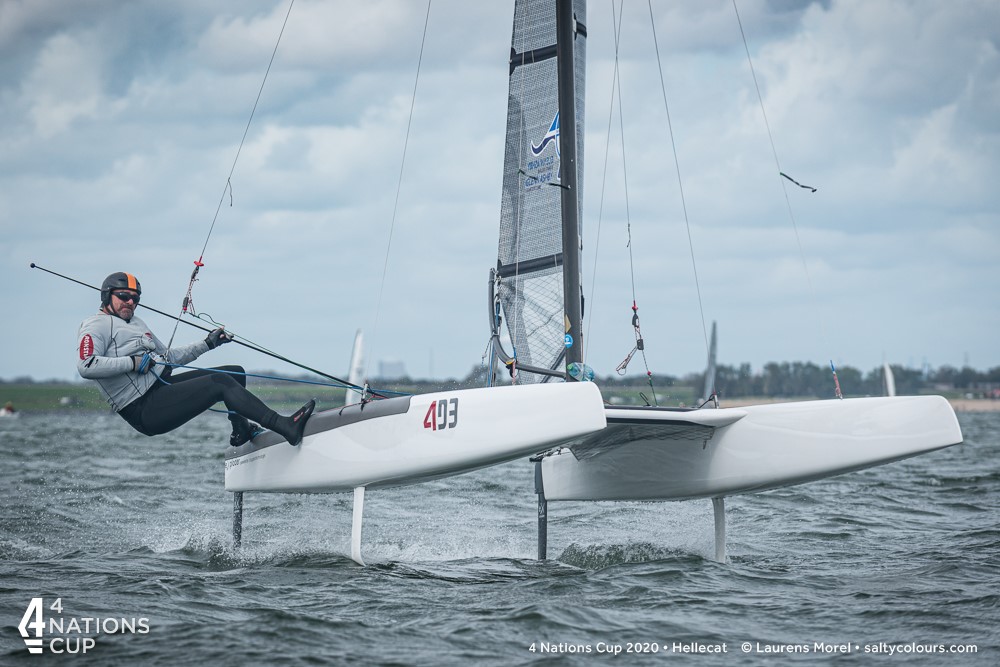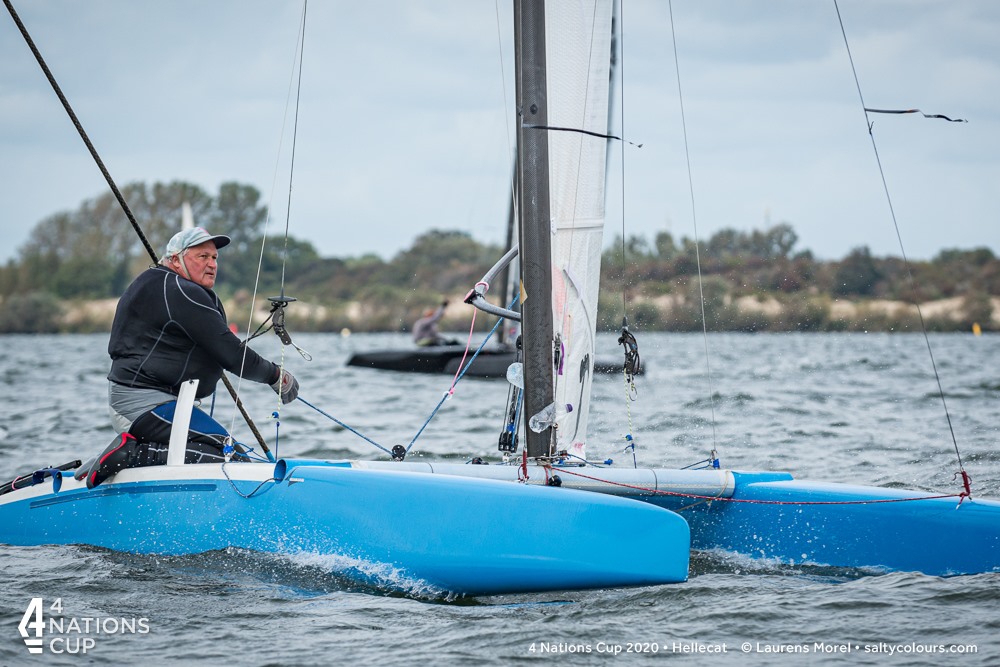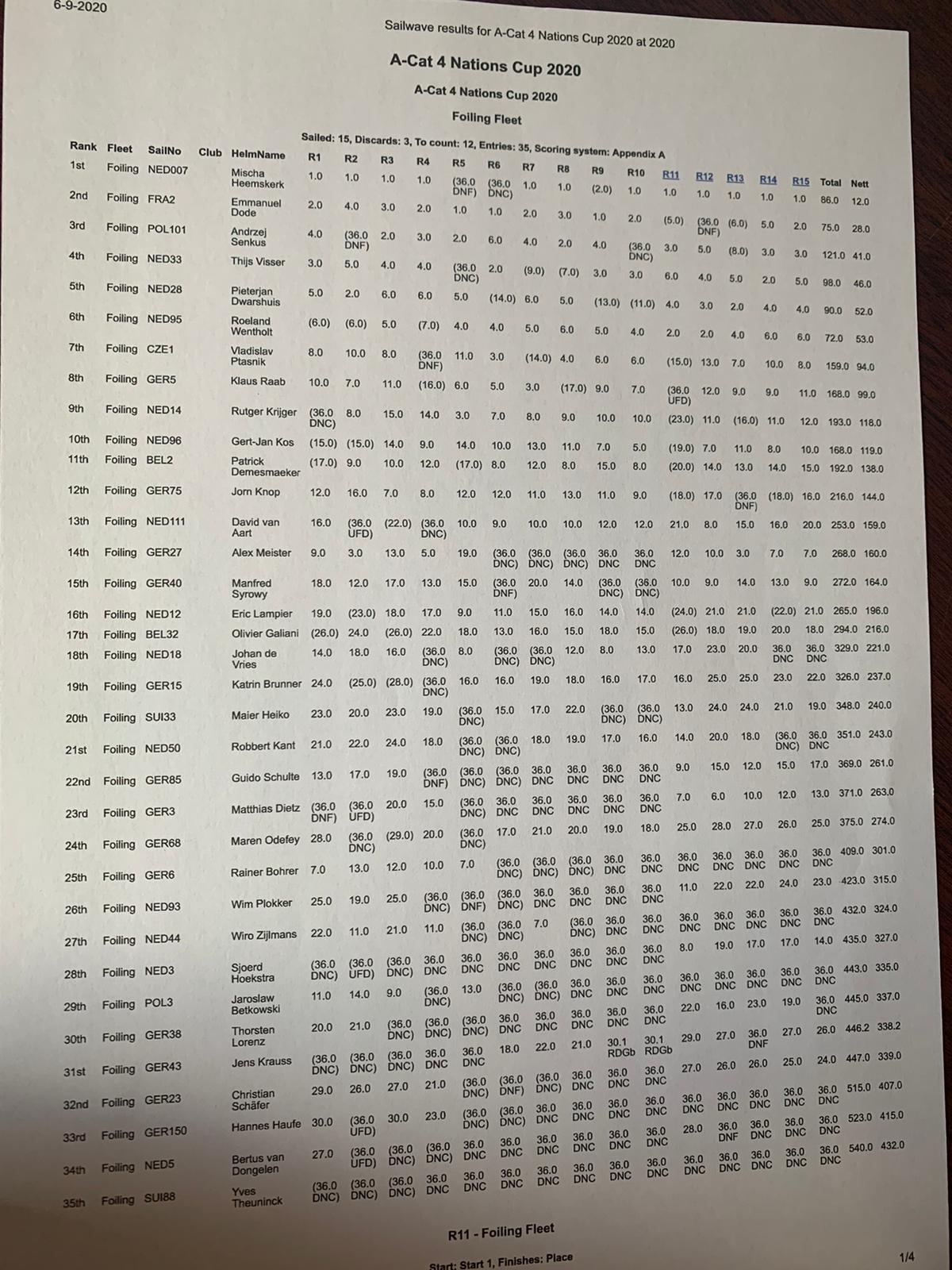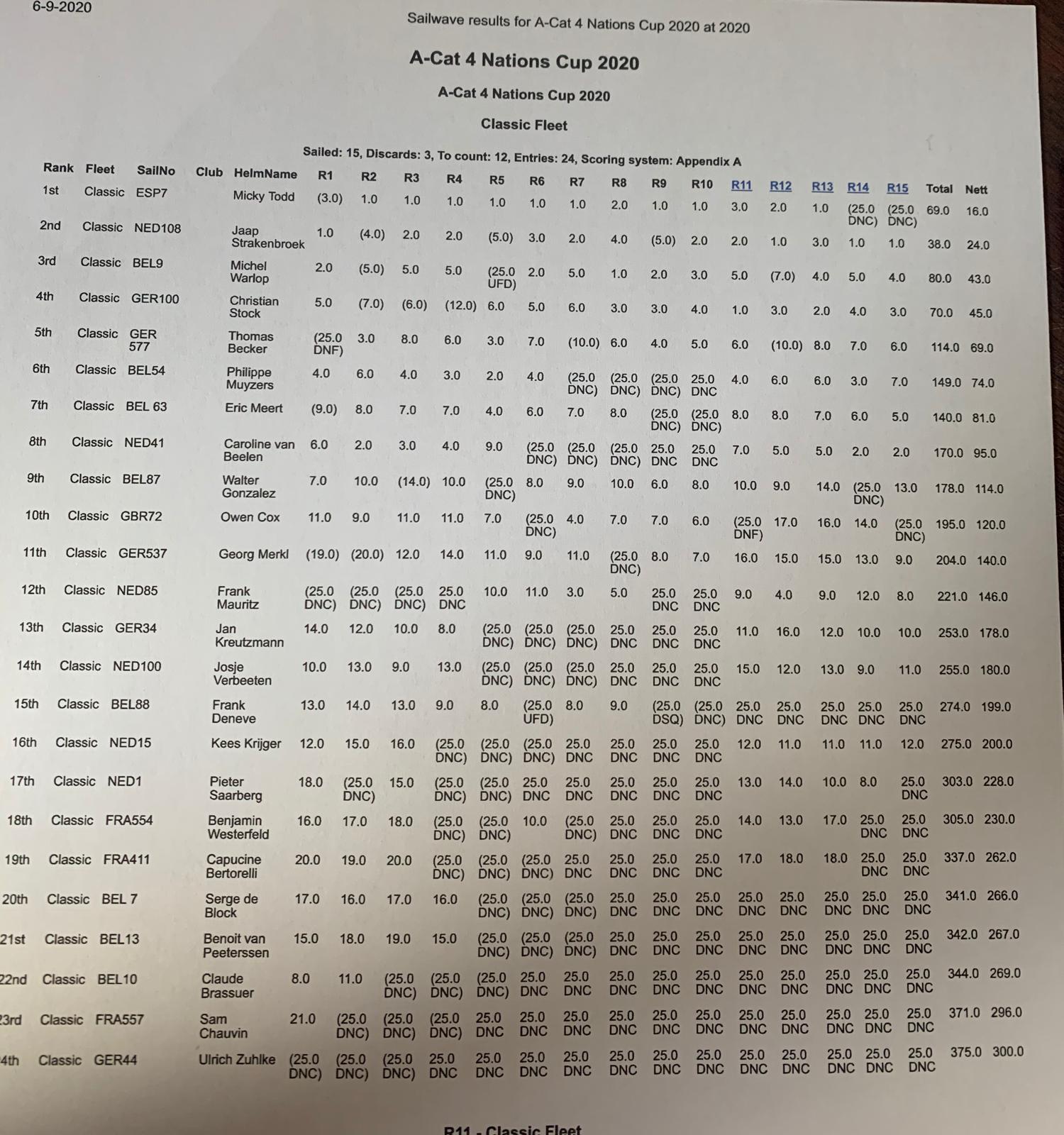More from the 4 Nations Cup event!
Report from the 4Nations-Cup in Hellevoetsluis from Christian Stock (GER 100)
"Pssshhhhhh".
There it is again, that piercing, unmistakable sound. It comes from Mischa Heemskerk, who, as always, lifts his A-Cat onto the foils a few seconds after the start signal and hisses away. Nobody masters upwind foiling as well as he does. It not only makes a boat speed of around 19 knots, but also achieves a good height. In order to be able to take the sail really tight, the main sheet has a reduction of 1 to 13.5. Even he, as a very strong sailor, would otherwise have considerable problems mastering the enormous forces in the face of an apparent wind of up to 39 knots. After just three minutes, Mischa was a few hundred meters ahead, he is in a league of his own here at the 4Nations Cup in Hellevoetsluis in South Holland.
The 4Nations Cup was originally intended to be the joint national championship of Great Britain, Belgium, Germany and the Netherlands. However, the British had to give in at short notice due to the corona, their government had imposed strict exit requirements. So it was a 3 Nation Cup. The turnout was still excellent, at least given the adverse conditions this year. 34 foilers and 24 classics from a total of eight nations made the cup a small European championship; this is likely to be the world's largest A-Cat regatta in 2020.
The area of the organized club Hellecat is near Rotterdam directly behind the dike to the North Sea. That means, you sail with the wind from the sea, but without large waves and without tides and currents. The wind conditions were "krachtig", as it is called in Dutch, only on the last of three days did they become moderate. Almost every sailor capsized at least once in the face of the sometimes violent gusts. Even Mischa Heemskerk and his training partner, the catamaran professional Thijs Visser, dismantled it on Saturday while driving out to the regatta area. Mischa damaged his port rudder, so that he had to carry out an emergency repair on the beach. But he kept his nerve, skipped only two races, which he could then cancel, and achieved 12 race wins in a total of 15 races.
Those who made it through all 15 races (which less than half of the sailors managed) were automatically good at the end result. But the price was high. Most sailors hadn't experienced such a strenuous regatta in a long time. Especially on Saturday, after six races in five winds, most of them were pretty flat. Since no social events were possible anyway due to the corona requirements, you could go to bed early.
In the Foilers, a fierce competition for second place broke out after first place had already been taken. The reigning French champion Emmanuel Dodé was sovereign and relegated the young but highly talented Poland Andrezj Senkus to third place. One should hear more of Senkus in the future if he stays true to the class. Klaus Raab from Füssen sailed a clean series, foiled almost all of the time and achieved a very good 8th place in the overall standings. He was also the winner of the International German Determination of the Best (IDB) in the Foiler category, ahead of the Northern Lights Jörn Knop and Alex Meister.
The Scotsman Micky Todd, sailing for Spain, had a strong performance at the Classics. With his own testimony of a hundred kilos fighting weight, he could not be held sailing upwind. Together with good tactics and decent starts, it was enough for nine race wins and the undisputed overall victory. Second was the Dutchman Jaap Straakenbroek, who was very fast with his DNA F1 trimmed for Classic. Michel Warlop from Belgium was able to defend third place. The winner of the Classic IDB was Christian Stock from Freiburg, who after a modest first day of racing was increasingly moving forward. Second place went to Thomas Becker (Wismar), third place to Georg Merkl vom Brombachsee.
Two things were not optimal, that should not be concealed here. At night, several trailers were broken into on the beach, so that some sailors could no longer participate due to stolen material. At such an open location as at Hellecat, a nightly security team is essential. The second problem could have been avoided even more easily: The race committee allowed the foiler and the classics to start at the same time, but put a separate windward buoy for the classics and carried out completely separate judgments. This led to very tight situations on the water for almost 60 boats; The Classics were almost never able to turn to their windward mark without any problems and the foilers had to do hairy evasive maneuvers downwind. If the evaluation is completely separate, then please also have separate starts and ideally also a separate course.
Many sailors would have preferred a common rating (from which the foil and classics can then be calculated) and a common course. Because all the differences between Foilers and Classics are still in the same class. Apart from that, the 4Nations Cup was a great event that was carried out with a lot of passion. You could see how lucky all the sailors were when they are able to finally pursue their favorite pastime again in this terrible Corona year: During the day, regatta sailing at a high level - and then in the evening to chat about it with friends from all over Europe.
Photos - Laurens Morel





